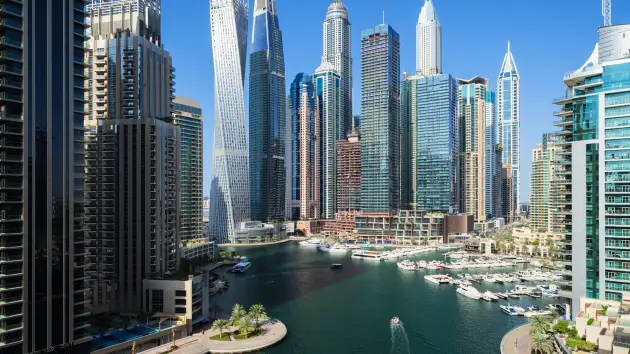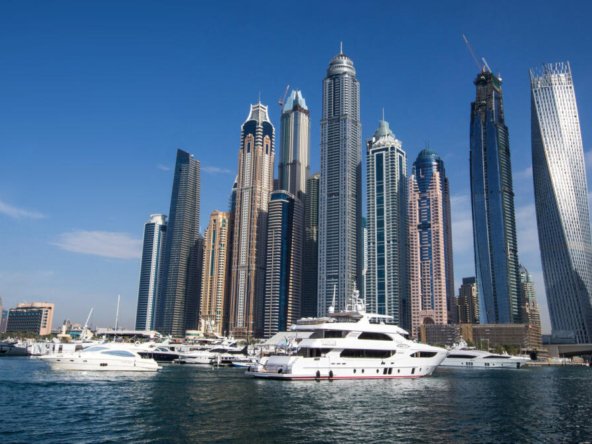The United Arab Emirates is on track to be the world’s top wealth magnet for the third year running, according to the Henley Private Wealth Migration Report.
At the same time, the U.K. – already the source of many of the UAE’s expatriates – is projected to see its millionaire population drop by 17% by 2028, according to Swiss bank UBS.
High-net worth individuals are in many cases voting with their feet, seeking greener pastures – or in the case of tax-free expat hubs like Dubai, sandier beaches – as costs and taxes rise in their home country. The trend is likely to accelerate in the wake of the landslide election victory for the U.K.’s Labour Party in June, according to some financiers.
“There are push and pull factors for this trend of millionaires opting to relocate to Dubai,” Karim Jetha, a longtime regional investor who relocated to the UAE from the U.K. during the pandemic, told CNBC.
“Push factors include the prospect of higher taxes under a new Labour government. For example, one of Labour’s campaign pledges was to levy VAT on private school tuition, which would raise the cost by 20%,” he said. “Pull factors include Dubai’s perception of being extremely safe and visa reforms that encourage migration.”
The UAE is set to see a record net inflow of 6,700 millionaires from around the world by the end of 2024, according to the Henley report, which was released in June. That’s nearly double the second-ranked country on the list, the U.S., which is expected to welcome a net inflow of 3,800 millionaires in the same time frame.
“With its zero income tax, golden visas, luxury lifestyle, and strategic location, the UAE has entrenched itself as the world’s number one destination for migrating millionaires,” the report said. The UAE’s golden visa is a long-term residence visa that allows foreign residents to live, work or study in the UAE.
While the millionaires migrating to the UAE most commonly come from India, the wider Middle East, Russia, and Africa, a larger number of Brits and Europeans are expected to move to the glitzy desert emirate as well, it added.
Development and reforms in the UAE’s “wealth management ecosystem” are to thank for much of this, said Sunita Singh-Dalal, partner at the Hourani Private Wealth & Family Offices in Dubai.
“In less than five years, the UAE has introduced a robust regulatory framework that provides the wealthy with a range of innovative solutions to protect, preserve and enhance their wealth,” she said.
Factors such as modern infrastructure and a robust international school system, geographical connectivity, low crime, no income tax, the remote worker visa and a number of investment incentives also help attract the wealthy to Dubai.
Britain, by contrast, is set to see its millionaire population drop from 3,061,553 last year to 2,542,464 by 2028, the UBS Global Wealth Report, which came out in June, forecast. But it’s important to note that the U.K.’s large millionaire population – the third-highest in the world – includes many foreign residents from places like Russia, the Middle East and elsewhere.
Now that the U.K. government is phasing out its “non-dom” status – which allowed wealthy and often foreign residents not to pay British taxes on overseas income – much of that population will be looking to drop their U.K. residencies.
“The outflow already generated by the economic and political turmoil in Britain risks being accelerated by further unwelcome policy decisions,” Hannah White, director of the independent think tank the Institute for Government in London, commented in the Henley report.
She pointed to the 40% duty already in effect on estates above a threshold of £325,000 ($417,755), as well as the ending of the UK’s non-dom tax regime starting in 2025.
The current Labour government has also pledged to drop the exemption for a 20% VAT charge on Britain’s private school tuition fees, which would make education significantly more expensive for those sending their children to the elite institutions.
“Labour’s commitment to remove their exemption from 20% VAT is a further unwelcome development,” White said.


